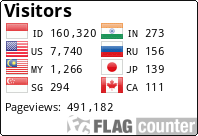Pemahaman Konsep Matematika melalui Media Youtube dengan Pendekatan Etnomatematika
DOI:
https://doi.org/10.33369/jpmr.v4i1.8953Keywords:
Youtube media, ethnomatematics, concept understandingAbstract
Our experience were that students find it difficult to understand mathematical concepts and principles. Students have difficulty doing mathematical problems. Therefore learning was needed which can overcome students' difficulties in understanding concepts and solving mathematical problems. Youtube is a learning media that has been cultured for every student. The purpose of this study is to determine whether youtube-based ethnomatematics learning using Corel Video Studio X10 has a positive effect on conceptual comprehension skills, and is better than conventional learning after controlling students' initial abilities. This research is a quasi-experimental with factorial 2x2 design. The study sample was selected by intact group of students in SMA N 2 and SMA N 6 Kota Bengkulu. The instrument of this research is a test of the ability to understand mathematical concepts. Data were analyzed with anakova. The results of this study are that there are differences in the ability of understanding concepts between students taught with youtube-based learning using Corel Videostudio X10 with an ethnomatematics approach and conventional learning after controlling students' initial abilities. The conclusion of this study is that youtube-based ethnomatematics learning using Corel Video Studio X10 has a positive effect on the ability to understand concepts, and is better than conventional learning after controlling students' initial abilities.References
d’Ambrosio, U. (1985). Ethnomathematics and its place in the history of mathematics. For the Learning of Mathematics, 5(1), 44–48. https://doi.org/10.2307/40247876
Fauzan, A., Slettenhaar, D., & Plomp, T. (2002). Traditional Mathematics Education vs . Realistic Mathematics Education : Hoping for Changes. Proceedings of the 3rd International Mathematics Education and Society Conference. Copenhagen: Centre for Research in Learning Mathematics, 1–4.
Gravemeijer, K. (2008). RME Theory and Mathematics Teacher Education. International Handbook of Mathematics Teacher Education 1 283, 283–302.
Herawaty, D., Widada, W., Novita, T., Waroka, L., & Lubis, A. N. M. T. (2018). Students’ metacognition on mathematical problem solving through ethnomathematics in Rejang Lebong, Indonesia. Journal of Physics: Conference Series, 1088. https://doi.org/10.1088/1742-6596/1088/1/012089
Herawaty, Dewi, Marinka, D. O., & Febriani, P. (2018). Improving Student ’ s Understanding of Mathematics through Ethnomathematics. Seminar on Advances in Mathematics, Science, and Engineering for Elementary Schools Mercure Hotel Yogyakarta, 16 August 2018 Website: Http://Samses2018.Upiconf.Org, (August).
Herawaty, Dewi, & Widada, W. (2018). The Influence of Contextual Learning Models and the Cognitive Conflict to Understand Mathematical Concepts and Problems Solving Abilities. Advances in Social Science, Education and Humanities Research, Volume 218 First International Conference on Science, Mathematics, and Education, (ICoMSE 2017) The, 218(ICoMSE 2017), 96–102.
Horstman, A. (2015). YouTube in the Classroom? Cases on Educational Technology Integration in Urban Schools, (April), 58–60. https://doi.org/10.4018/978-1-61350-492-5.ch015
Kumar, A., & Kumaresan, S. (2008). Use of Mathematical Software for Teaching and Learning Mathematics. The International Congress on Mathematical Education (ICME) 11, 373–388.
Laurens, T., Batlolona, F. A., Batlolona, J. R., & Leasa, M. (2018). How does realistic mathematics education (RME) improve students’ mathematics cognitive achievement? Eurasia Journal of Mathematics, Science and Technology Education, 14(2), 569–578. https://doi.org/10.12973/ejmste/76959
Mayoral, P., Tello, A., & Gonzalez, J. (2010). YouTube Based Learning. FIG Congress 2010, (April), 11–16.
Shirley, L. (2001). Ethnomathematics as a fundamental of instructional methodology. Zdm, 33(3), 85–87. https://doi.org/10.1007/BF02655699
Taufiqurrochman, H. R. (2017). Pembuatan Live Streaming Youtube untuk Pembelajaran. Workshop Pembelajaran Berbasis Multimedia Senin, 30 Januari 2017 Di MTs Negeri Pagu Kediri Kerjasama.
Van den Heuvel-Panhuizen, M., & Drijvers, P. (2018). Realistic Mathematics Education. Encyclopedia of Mathematics Education, 521–525. https://doi.org/10.1007/978-94-007-4978-8_170
Widada, W., Herawaty, D., & Lubis, A. N. M. T. (2018). Realistic mathematics learning based on the ethnomathematics in Bengkulu to improve students’ cognitive level. Journal of Physics: Conference Series, 1088. https://doi.org/10.1088/1742-6596/1088/1/012028
Widada, Wahyu, & Herawaty, D. (2018). The Effects of the Extended Triad Model and Cognitive Style on the Abilities of Mathematical Representation and Proving of Theorem. Advances in Social Science, Education and Humanities Research, 218(ICoMSE 2017), 89–95. https://doi.org/10.2991/icomse-17.2018.16
Widada, Wahyu, Herawaty, D., Falaq, A., Anggoro, D., Yudha, A., & Hayati, M. K. (2019). Ethnomathematics and Outdoor Learning to Improve Problem Solving Ability. Advances in Social Science, Education and Humanities Research, Volume 295, 295(ICETeP 2018), 13–16.
Widada, Wahyu, Herawaty, D., & Lubis, A. N. M. T. (2018). Realistic mathematics learning based on the ethnomathematics in Bengkulu to improve students ’ cognitive level Realistic mathematics learning based on the ethnomathematics in Bengkulu to improve students ’ cognitive level. Journal of Physics: Conference Series, 1088(1), 1–8.
Widada, Wahyu, Herawaty, D., Yanti, D., & Izzawati, D. (2018). The Student Mathematical Communication Ability in Learning Etnomathematics Orieted Realistic Mathematics. International Journal of Science and Research (IJSR), 7(9), 881–884. https://doi.org/10.21275/ART20191277
Widada, Wahyu, Sunardi, H., Herawaty, D., Pd, B. E., & Syefriani, D. (2018). Abstract Level Characteristics in SOLO Taxonomy during Ethnomathematics Learning. International Journal of Science and Research (IJSR), 7(8), 352–355. https://doi.org/10.21275/ART2019438
Widada, Wahyu, Umam, K., Nugroho, Z., & Sari, W. P. (2018). The Ability of Mathematical Representation through Realistic Mathematics Learning Based on Ethnomathematics. Seminar on Advances in Mathematics, Science, and Engineering for Elementary Schools Mercure Hotel Yogyakarta, 16 August 2018 Website: Http://Samses2018.Upiconf.Org, (August).
Downloads
Published
How to Cite
Issue
Section
License

Jurnal Pendidikan Matematika Raflesia oleh https://ejournal.unib.ac.id/index.php/jpmr dilisensikan di bawah Lisensi Internasional Creative Commons Attribution-ShareAlike 4.0 International .







